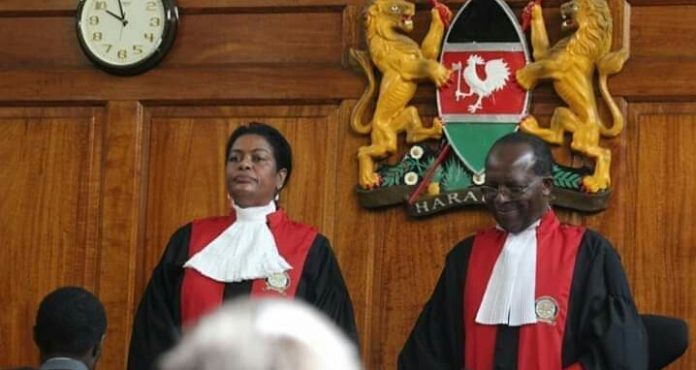BY SAM ALFAN.
Muslims students in Christian church-sponsored schools must comply with specified uniforms, including exceptions to the Hijab for females, the Supreme Court ruled.
The Court held that private schools were at liberty to determine their school uniform policies, which should not be meant to discriminate students on account of their religious beliefs.
“That the judgment of the Court of Appeal dated 7 September 2016 is hereby set aside,” ruled Supreme Court
However, students who choose to study in private institutions must comply with regulations governing the code of dress and conduct in maintaining discipline and good order, the majority decision by the five-Judge bench, chaired by Deputy Chief Justice Philomena Mwilu, said.
Trustees of the Methodist Church had petitioned the Supreme Court on May 16, last year to invalidate the Court of Appeal declaration that all students in public schools should be allowed to wear religious items of clothing in addition to their specified school uniforms.
The Church, through lawyers Kibe Mungai and Henry Kurauka, challenged the landmark decision by Appellate Judges Philip Waki, Roselyne Nambuye and Patrick Kiage delivered on August 9, 2016 in which they ruled that students deserved to obey their religious requirements in accord with their constitutional rights, which must be respected and protected. The Attorney General and the Teachers Service Commission (TSC) had supported the appeal by the Church.
Further, the Appellate bench had warned sponsors of public schools against imposing harsh, rigid and discriminatory conditions on students drawn from diverse religious backgrounds. It was imperative for promoters of education to embrace the values and principles of dignity, diversity and non-discrimination, the court had held.
The Appellate bench had quashed the ban imposed on female Muslim students of St. Paul’s Kiwanjani Day Mixed Secondary School in Isiolo County from wearing the Hijab and white trousers in addition to the school uniform. The management board of the school was directed to consult parents and students before restructuring the school uniform policy to accommodate exceptions to the Muslim community.
“The order of injunction preventing the respondents from allowing Muslim students to wear hijab contrary to school rules and regulations of St. Paul’s Kiwanjani Day Mixed Secondary School be and is hereby quashed and set aside,” ruled court of appeal.
The school’s uniform policy indirectly discriminated against Muslim female students “in so far as it prohibits and prevents them from manifesting their religion through the practice and observance of wearing the Hijab,” the court reasoned, and overturned the decision made by High Court Judge Harun Makau, outlawing the Muslim attire on the basis that it was illegal and discriminatory of the other student population.
The Church, which sponsors the school, had sued the Teachers Service Commission (TSC), the Isiolo County Education Director and the sub-county’s education officer claiming they had flouted the school regulations and interfered with the running of the institution.
The Church had argued that the decision to allow the female Muslim students to dress differently had created animosity and discord among the student population.
“We find and hold that there was no factual or legal basis for the holding by the learned Judge that allowing Muslim girls to wear Hijab favoured Muslim girl students and discriminated against non-Muslims,” Justices Waki, Nambuye and Kiage had said.
Further, the school uniform policy was neutral and applied to all students equally so there was nothing offensive of any religion, they said.
“In the instant case, it was never asserted by the church that any of the non-Muslim students had complained that the school uniform rules curtailed their religious beliefs or practices,” the Appellate Judges had observed.
The Chief Kadhi, Hammad Mohamed Kassim Mazrui, had explained in a sworn statement that the Hijab was not a matter of choice but a religious obligation which should not be hindered or compromised.
He had made the distinction that the Hijab was not merely a dress code but an Islamic concept that seeks to maintain chastity and modesty among all Muslim females.







